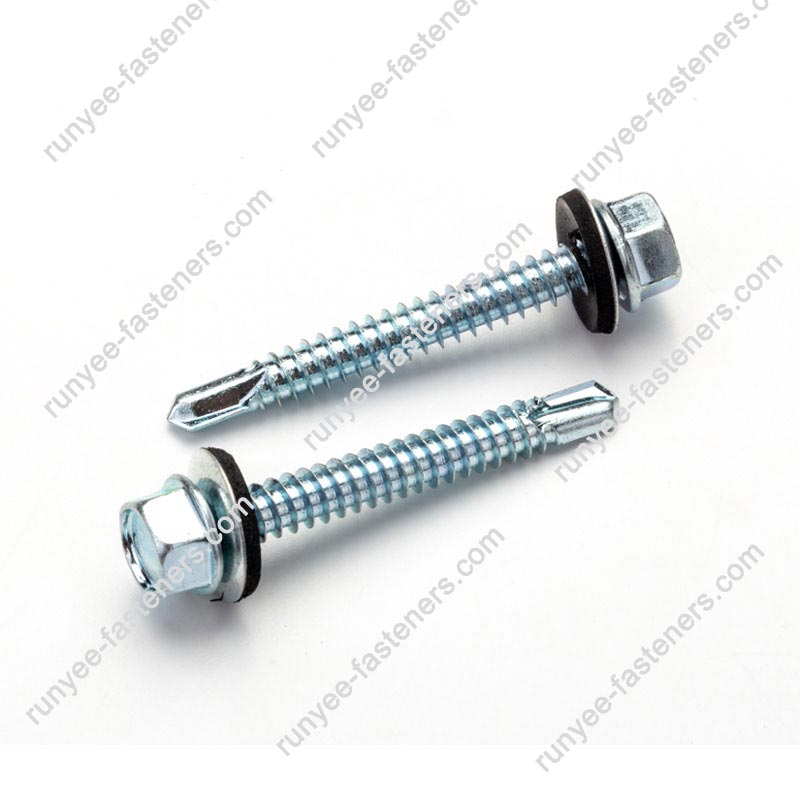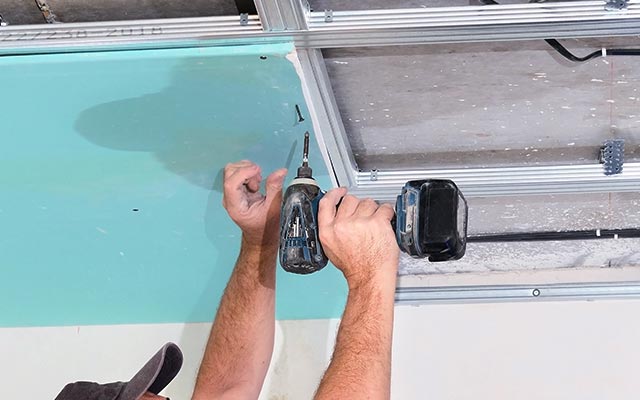What Makes Self Drilling Screws the Preferred Choice for Modern Construction and Manufacturing?
2025-10-29
Self drilling screws, also known as Tek screws, have become an indispensable fastener in modern construction, metalworking, and industrial manufacturing. Unlike conventional screws, self drilling screws are designed with a built-in drill point that eliminates the need for pre-drilling holes. This unique feature makes them an efficient, time-saving solution for fastening materials such as steel, aluminum, and composite panels.
The purpose of this article is to explore the definition, advantages, functions, and future trends of self drilling screws, providing professionals in construction and manufacturing industries with a comprehensive understanding of their mechanical performance and practical benefits.
At their core, self drilling screws streamline assembly and improve efficiency while ensuring precision and durability. With increasing demand for automation and high-speed assembly, their use continues to expand across industrial sectors worldwide.
Key Product Specifications of Self Drilling Screws
| Parameter | Description |
|---|---|
| Material | Carbon Steel, Stainless Steel (A2, A4), Zinc-Plated Steel |
| Head Type | Hex Washer Head, Pan Head, Flat Head, Countersunk, Truss Head |
| Drive Type | Phillips, Hex, Square, Torx |
| Drill Point Type | #1 to #5 point (for varying thickness of metals) |
| Thread Type | Fine thread, Coarse thread, Twin thread |
| Diameter Range | M3.5 – M6.3 |
| Length Range | 9.5 mm – 150 mm |
| Surface Treatment | Zinc plating, Ruspert coating, Dacromet, Nickel plating |
| Tensile Strength | 800–1200 N/mm² depending on material and heat treatment |
| Corrosion Resistance | High, depending on coating type |
| Application Areas | Roofing, Steel framing, HVAC installation, Metal furniture, Automotive, Electrical fixtures |
These specifications are critical in selecting the right type of screw for specific project requirements, ensuring structural integrity, and reducing maintenance costs.
Why Self Drilling Screws Are Revolutionizing Fastening Solutions
Self drilling screws stand out because they combine drilling, tapping, and fastening functions in one integrated component. Their efficiency in reducing labor and time is one of the most significant reasons for their widespread adoption.
Key Advantages of Using Self Drilling Screws
-
No Pre-Drilling Required:
Their self-contained drill point allows penetration of metal, wood, or plastic directly, saving both tool costs and assembly time. -
Enhanced Productivity:
Installation speed can be increased by up to 50% compared to traditional fasteners that require separate drilling and tapping steps. -
Secure and Consistent Joints:
The threads create a tight, vibration-resistant connection, which is essential for applications like HVAC systems or steel roofing that endure environmental stress. -
Corrosion Protection:
Coatings such as zinc or Ruspert improve corrosion resistance, making them suitable for outdoor or marine environments. -
Reduced Tool Wear:
Because the screw performs both drilling and fastening functions, it minimizes the wear on drill bits and other tools. -
Wide Range of Head Designs:
Available in multiple head styles to suit various aesthetic and structural requirements, from flat countersunk heads for flush surfaces to hex washer heads for high torque applications. -
Eco-Efficiency and Sustainability:
By combining multiple fastening steps into one, self drilling screws reduce energy consumption, material waste, and carbon footprint in manufacturing processes.
Industry Applications
-
Metal-to-Metal Joining: Perfect for structural steel framing and sheet metal fabrication.
-
Roofing and Cladding: Commonly used for securing corrugated sheets or panels to purlins.
-
Automotive and Machinery: Provide strong, vibration-resistant fastening for components exposed to constant motion.
-
Electrical Installations: Used to attach metal conduits, fixtures, and panels without damaging the surface.
-
Furniture and Interior Design: Preferred for metal and composite assembly requiring a clean and polished appearance.
The growing trend toward prefabricated construction and modular building systems further amplifies the relevance of self drilling screws. Their ability to reduce installation time while maintaining reliability aligns perfectly with the modern construction philosophy of efficiency and sustainability.
How to Select and Use Self Drilling Screws Effectively
Selecting the right self drilling screw requires understanding material compatibility, thickness, and environmental conditions. The correct combination of drill point, head type, and coating ensures optimal performance.
Key Factors to Consider When Choosing Self Drilling Screws
-
Base Material Hardness:
Choose higher drill point numbers (#3 to #5) for thicker or harder metals to prevent tip wear and ensure proper penetration. -
Corrosion Exposure:
For outdoor or coastal applications, stainless steel or coated screws such as Ruspert or Dacromet are recommended. -
Head Type Selection:
-
Hex Washer Head: Ideal for high-torque applications.
-
Pan or Flat Head: Suitable for flush mounting on thin surfaces.
-
Countersunk Head: Provides a smooth finish, preventing snagging or damage.
-
-
Installation Torque:
Always follow manufacturer torque recommendations to avoid stripping threads or damaging the workpiece. -
Drilling Speed:
Maintain moderate drill speed—too high may overheat the screw, while too low can cause poor penetration. -
Coating and Aesthetic Requirements:
Depending on visible or concealed installations, color-coated or nickel-plated screws may enhance the visual appeal of the assembly.
Maintenance and Performance Optimization
-
Regular inspection ensures screws maintain their clamping force and integrity.
-
Replace corroded or worn screws promptly to prevent structural failure.
-
Store screws in dry, cool conditions to prevent oxidation and coating degradation.
Common Mistakes to Avoid
-
Using incorrect drill points for the material thickness.
-
Overdriving screws, which may strip threads or deform metal sheets.
-
Mixing metals (e.g., carbon steel screw on aluminum panels) that could lead to galvanic corrosion.
Proper selection and installation of self drilling screws can extend the service life of the assembly and improve long-term performance.
The Future of Self Drilling Screws and Industry Trends
The future of self drilling screws lies in innovation, sustainability, and smart manufacturing integration. With global construction adopting automation and eco-conscious methods, demand for high-precision, corrosion-resistant, and high-strength fasteners continues to grow.
Emerging Trends
-
Advanced Coating Technologies:
Manufacturers are introducing nano-ceramic and hybrid coatings that enhance corrosion resistance up to 1000+ hours in salt spray tests. -
Smart Fastening Systems:
Integration with torque-monitoring tools and automated screwdrivers allows for consistent torque control and quality assurance in assembly lines. -
Lightweight Materials:
The rise of aluminum and composite materials in architecture and automotive design demands screws that balance strength with lightweight design. -
Sustainability Focus:
Recyclable coatings and energy-efficient production methods are becoming industry norms, aligning with global green building standards. -
Customization and Precision Manufacturing:
Increasing demand for tailored solutions based on application-specific needs—head shape, thread pitch, or drill point length—is driving product diversification.
Frequently Asked Questions About Self Drilling Screws
Q1: How do self drilling screws differ from self tapping screws?
A1: Self drilling screws feature a drill-shaped point that can penetrate materials directly without a pre-drilled hole. In contrast, self tapping screws require a pre-drilled pilot hole to cut threads. Self drilling screws, therefore, combine drilling and tapping into one action, saving time and reducing tool wear.
Q2: Can self drilling screws be used in stainless steel applications?
A2: Yes, but it is essential to use high-quality self drilling screws made of hardened steel or stainless steel with a proper drill point. Using standard carbon steel screws on stainless steel may cause premature wear or insufficient penetration. Specialized coatings such as titanium or nickel can improve performance in such environments.
Conclusion: The Future Is Driven by Precision and Efficiency
Self drilling screws have transformed the way industries approach fastening—streamlining construction, reducing installation costs, and ensuring long-term reliability. Their ability to merge drilling, threading, and fastening functions into a single step sets them apart as one of the most efficient fasteners in the market today.
As industries move toward automation, modular assembly, and sustainable construction, self drilling screws will continue to play a vital role in achieving faster, cleaner, and more reliable results.
RUNYEE factory, a leading manufacturer specializing in precision-engineered self drilling screws, offers a wide range of high-performance fasteners tailored to various industrial applications. With advanced production lines, strict quality control, and continuous innovation, RUNYEE ensures each product meets international standards and customer expectations.
For inquiries, customized solutions, or bulk orders, contact us today to discover how RUNYEE’s expertise can enhance your next project’s performance and reliability.




























